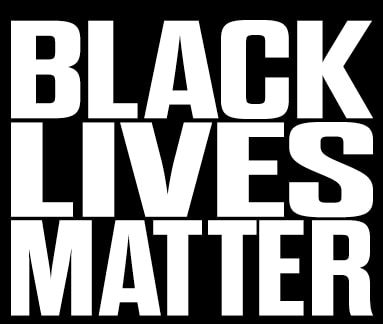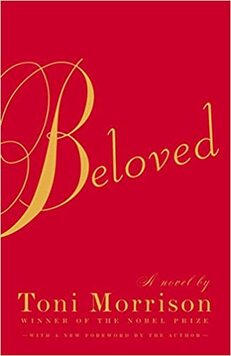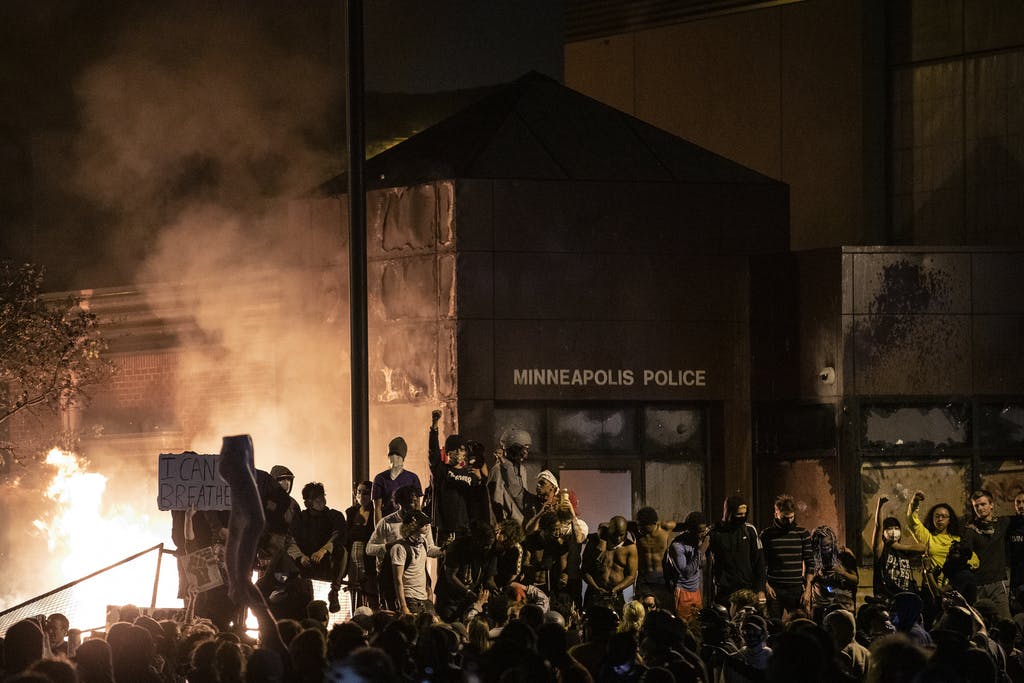 I’m going to meet George Carter’s great-nephew. Even if you’ve read Next Train Out, the name George Carter may not ring a bell. My calculations indicate that I called his name five times in the narrative, but I’ve learned over recent weeks that I probably should have cited his name more. George Carter is significant to Lyons’ story, and he’s significant to today’s story. In this era of reckoning—and, one hopes, some sort of reconciliation, eventually—the George Carters of the world need to be remembered. We cannot forget. And those of us whose ancestors are directly tied to these stories, we need to face the music. Now. Next month I will sit down with a descendant of the man who was lynched in front of the Bourbon County courthouse because he allegedly “assaulted” my great-grandmother. I’m not sure how to relay to you the awe I’m feeling, the anticipation, the relief, the gratitude, and, yes, the shame that shivers up my spine as I contemplate this meeting. I won’t detail the machinations that resulted in the heinous act on February 10, 1901. I will say that the single news story about the initial incident, which occurred in early December 1900, described what we today would call an attempted purse snatching. But perhaps it’s important to keep in mind that the newspaper where that article appeared, the Kentuckian Citizen, was published by Mrs. Board’s cousin. The newspaper’s offices occupied a building once owned by Mrs. Board’s father, a prominent physician. After her father’s death, Mrs. Board inherited that property. One of the competing papers in town, the Bourbon News—which carried a fulsome story of the lynching two months later—was published by the husband of Mrs. Board’s closest friend. I point that out to show how the power structure in town was stacked against Mr. Carter. Whatever transpired between him and Mrs. Board, he didn’t stand a chance. He was black. She was white, and she was connected. Two months after the incident, when the mob formed, whatever had actually happened on that cold December day was long forgotten. Rumors and innuendo and wild imagination had successfully altered the truth. For some in town, the crime now justified taking the life of a young man with a wife and two daughters under the age of two. Sound familiar? We have an opportunity to address some of this ongoing injustice now. Our country is awake. Video recordings provide unshakable truth. We must find the courage and the determination to start fixing these inequalities and addressing the resulting brutality. I am grateful that I will have the opportunity to speak to one of Mr. Carter’s descendants. I am grateful that he wants to meet with me. I have no idea what I will say. There is no recompense. I cannot change the past. But I’m eager to see what I can start doing today.
5 Comments
Tim Cooper, of St. Paul, Minn., shares his experiences living in the Twin Cities in the aftermath of George Floyd’s death. If you would like to share your thoughts on Clearing the Fog, please contact us here. Your eyes open to the sound of gunfire, a pitched battle on the far periphery of your being. The shots—staccato, syncopated—lay siege and surround you in fear. Immediately you wonder, do you flee or do you surrender? Do you hold firm or do you seek shelter? Where could you go? To whom or to what would you capitulate? And then you realize that distant roads have been reopened, that the sound you hear is nothing more than semis on the faraway interstate rebounding over undulations in the road. Why have you never heard this before? Is it the silence of the recent curfew, of inertia, of comfortable isolation, that awakens you to a noise that was always there? But this fear, this pervasive fear—how do you account for it? You remember two days previous, unthinking as you take your dog for her normal 5 a.m. walk. Ah, the comfort of your routine, your beloved sense of order. Behind you, flashing lights from a police cruiser as you trek down the deserted street. When he pulls up beside you the policeman wearily reminds you of the curfew’s hours, suggests staying closer to home. He attempts a comforting smile but doesn’t receive one from you in return. Later, you’re simply grateful that he didn’t turn the siren on full-blare. The thought of being physically accosted and harmed by him had never occurred to you. And why not? Because you have armor that shields you even as you defy your city’s curfew. You are white, male, middle-class, educated, not tall, not overly muscular—in short, not a threat. You’re not black, brown, yellow, or red; you’re not a recent immigrant; your speech sounds local. Without this armor, would you have been gently prodded to return quietly to your home? Recent events tell you no. Your beloved city is on fire, and you can measure the anger and trepidation everywhere you go. There is a despair that permeates, that is all-encompassing. Drug stores, gas stations, grocery stores, banks are boarded up and closed. You drive across the state line to Wisconsin to put gas in your car. A branch of your bank is there and you can get medication from a pharmacy. The grocery stores appear well-stocked. You carry on with the charade of normalcy. But you know better. You recall that you also live in a time of pandemic, that participation in demonstrations of solidarity for George Floyd and for those without power or voice involve calculated risk. You do the arithmetic, and it still demands that you participate, that to do less than all you can will result in an amputated life of insidious horror—for you and for others. Solace is an ephemeral commodity. You try to comfort your friends—both near and far—and they do the same for you. You try to galvanize them to political action, and you plot strategies of engagement. You want desperately to affect change. And then you recall that June 6 is the anniversary of Robert Kennedy’s assassination. Bobby, killed advocating for change, killed because he believed in the power of existential action, killed because he cared. You consult his speech in Indianapolis on the night of Martin Luther King’s murder, a speech that always comforts and calms you. And Bobby, quoting the Greek poet Aeschylus, said: Even in our sleep, pain which cannot forget falls drop by drop upon the heart, until, in our own despair, against our will, comes wisdom through the awful grace of God.  Joe Ford, of Louisville, Ky., responds to a recent blog post—and to our times. If you would like to share your thoughts on Clearing the Fog, please contact us here. Just three weeks before her death on August 5, 2019, I attended a showing of the documentary film Toni Morrison: The Pieces I Am at the Speed Museum Cinema in Louisville. Frankly, I had not read any of her works and knew next to nothing about her—I attended only after prodding from my wife, who consumes books at a prodigious rate and had read a couple of Morrison’s books. A wonderful film, if you get the chance. The documentary spent some time, not surprisingly, on Beloved, for which Morrison won the Pulitzer Prize in 1988. The novel is based on a true story—that of Margaret Garner, a slave for the Gaines family of Maplewood plantation, Boone County, Kentucky. In January of 1856, during the coldest winter in 60 years, the Ohio River froze over. A pregnant Margaret, her husband, Robert, and their four children as well as eleven others crossed the river just west of Covington, Kentucky, and made their way to Cincinnati, then split up to avoid detection. Nine slaves made it to safe houses and eventually to Canada via the Underground Railroad. Margaret, Robert, their children and Robert’s father and his wife made it to the residence of Margaret’s uncle, west of Cincinnati. Her uncle went to the abolitionist Levi Coffin for advice on how to get them to safety. Before her uncle returned with that advice, however, slave catchers and U.S. Marshalls first surrounded and then stormed the house. Though Ohio was a free state, the federal Fugitive Slave Law allowed return of slaves to their owners if caught in another state. Realizing that they would be captured and returned to slavery, Margaret killed her two-year-old daughter and wounded her other children, preparing to kill them and herself before she was stopped. And this is where I cried. There is first the almost inconceivable pain and anguish of a mother who would kill her children to save them from a life of slavery, suffering and brutality. Infanticide was not unknown for this very reason. But the legal ramifications about the case gained the most attention: would the Garners be tried for murder, which meant they would be tried as persons (and that their daughter was a person)? Or would they be treated as property to be returned to their masters? That is, is the issue murder or the destruction of private property? Property won, and they were returned to Kentucky and a life of bitterness, despair and abuse as slaves. Somehow this juxtaposition of human despair and societal degradation affected me profoundly; it wasn’t so much a change of opinion as a change of degree and a recognition of the cultural structure that supported slavery, free state or not. All pretense fell away. There is no confederate monument that should still stand. There is no argument about fidelity to preservation of a “culture.” There is only evil masquerading as something else, only another inexplicable example of man’s inhumanity to man. If we fly the Confederate flag (and my nephews do) we show our ignorance, and we say that rape, torture and forced labor are fond traditions, sort of like Thanksgiving at grandma’s. This is our legacy. It is how we got here. You tell me: is the despair gone? Is the degradation any less structural? So, no, in response to the question at the beginning of “Our Sins,” I don’t know when the outrage ends. But I, too, believe the looting will obscure the reason for the protests. We’ll follow our sad excuse of a president and concentrate energy and focus on the looting and completely lose sight of why there is so much anger. And we will feel justified to dismiss the true cause, because, you know, property is more valuable and more important than human lives. Legacy indeed. Certainly we have to transform ourselves first. And then our words and actions. Yes, we agree with the business owners whose neighborhoods have been looted or burned. It’s wrong. And, yes, we care about our police officers, many of whom have behaved in truly brave and Christian fashion during this unrest. But we have to speak to them and to others of what the protests are about. Black men are routinely killed, often by police. It is not right. Have that conversation. Speak up! The death of our fellow citizens, like George Floyd, should not happen in America. You don’t die for (allegedly, since there was no trial) trying to buy a pack of cigarettes with a $20 counterfeit bill. Keep the conversation focused on that. We need to care. Because it is the right thing to do. And because next it will be our sons and daughters, compliant after an arrest, after a mistake, or after a march for justice. Will they deserve to die? |
Details
Archives
June 2023
Categories
All
|



 RSS Feed
RSS Feed